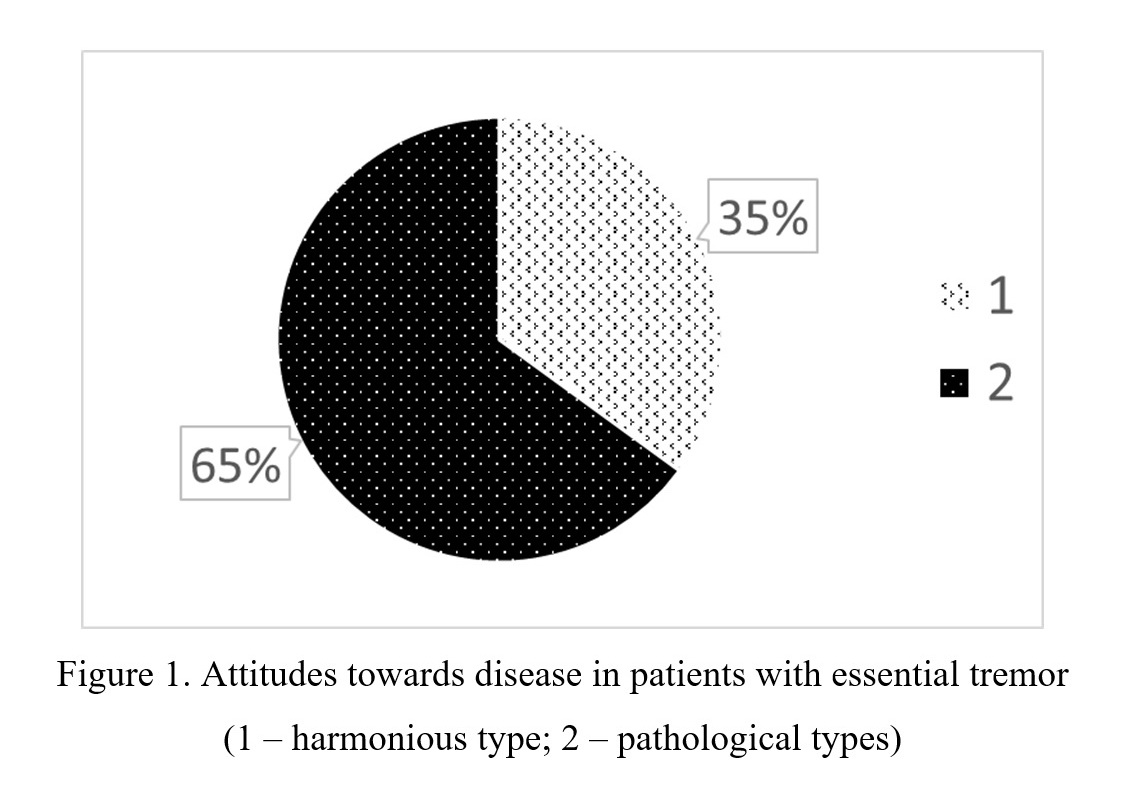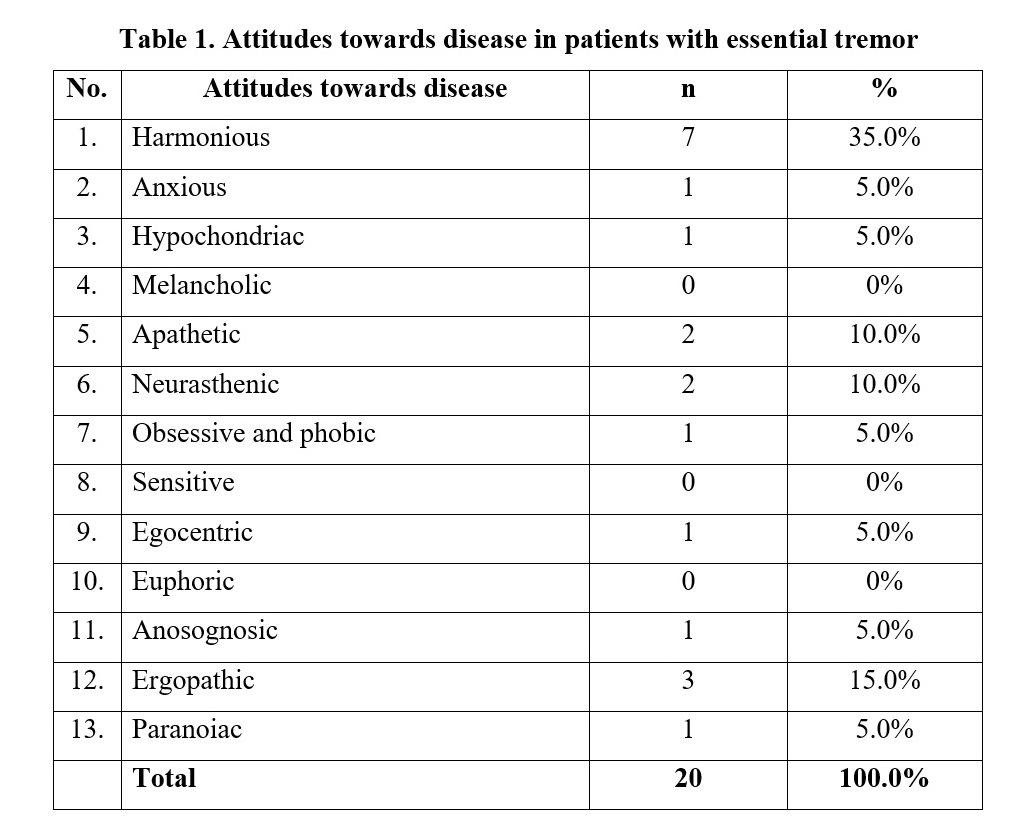Category: Tremor
Objective: The objective of our research was to study the types of attitude towards the disease in patients with essential tremor (ET).
Background: The Personal Questionnaire of the Bekhterev Institute (PQBI) was designed with the aim to diagnose the types of attitudes towards a disease and other personal attitudes connected with it at patients with chronic diseases. The PQBI can diagnose patterns formed by the influence of the disease which represent a patient’s attitudes to the disease itself, to its ways of treatment, to doctors and other medical personnel, to relatives and friends, to those who surround him, to work (education), to loneliness and the future as well as to his own vital functions (general state, mood, sleep, appetite, etc.). The following types of attitudes can be diagnosed with the help of the PQBI, namely: the harmonious, the anxious, the hypochondriac, the melancholic, the apathetic, the neurasthenic, the obsessive and phobic, the sensitive, the egocentric, the euphoric, the anosognosic, the ergopathic, and the paranoiac ones (Kabanov M.M., Lichko A.E., Smirnov V.M., 1983) [1].
Method: 20 consecutive patients with ET (15 males and 5 females, age range from 17 to 65) were questioned at time of routine clinic visits. Average duration of ET was 8.7 ± 1.4 years.
Results: The harmonious type of attitude towards the disease was observed in 7 patients with ET (35.0%), while pathological types of attitude were identified in 13 patients (65.0%) (Fig. 1). [figure1]
Among the pathological types of attitude towards the disease, the most common were ergopathic (15.0%), apathetic (10.0%) and neurasthenic (10.0%) types (Table 1). [table1]
A harmonious type of attitude towards the disease was much more common in patients with mild to moderate tremor compared with patients with severe tremor (40.0% vs. 20.0%, p < 0.05).
Conclusion: Pathological types of attitude towards the disease were identified in the majority of patients with essential tremor (65.0%). Only 35.0% of ET patients had a harmonious type of attitude towards the disease.
References: 1. Kabanov M.M., Lichko A.E., Smirnov V.M. Methods of psychological diagnosis and correction in the clinic. Leningrad: Meditsina, 1983.
To cite this abstract in AMA style:
Y. Trufanov, N. Svyrydova, V. Sereda, V. Svistun, A. Yanchak, I. Zarashchak. Attitudes towards disease in patients with essential tremor [abstract]. Mov Disord. 2020; 35 (suppl 1). https://www.mdsabstracts.org/abstract/attitudes-towards-disease-in-patients-with-essential-tremor/. Accessed December 16, 2025.« Back to MDS Virtual Congress 2020
MDS Abstracts - https://www.mdsabstracts.org/abstract/attitudes-towards-disease-in-patients-with-essential-tremor/


